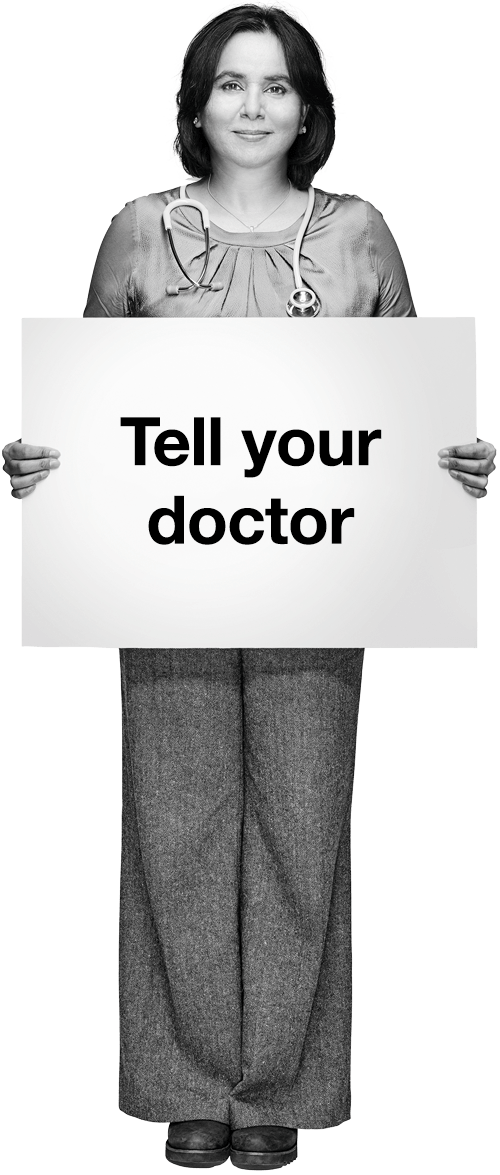If you notice blood in your pee, even if it's just the once, tell your doctor.
Dr Philip Sawyer
Get this information in other formats

Dr Philip Sawyer
Get this information in other formats

If you notice blood in your pee, even if it's just the once, tell your doctor. Chances are it's nothing serious, but you're not wasting anyone's time by getting it checked out. Call your GP today.
Some symptoms may be caused by an infection or bladder or kidney stones, all of which may need treatment. But don't try and diagnose yourself. Go and see your doctor now to find out for sure.
Also, if you’ve been to the doctor but your symptoms haven't gone away, he or she will want to know. It's important to see your doctor again if your symptoms persist.
Blood in your pee can also be a sign of bladder cancer or kidney cancer, which is why it's so important to see your doctor straight away. Early detection makes it easier to treat. Seeing your doctor could save your life.
Acting quickly probably saved my life. In fact, it's given me a new lease of life.
Pam Crooks, aged 68
Blood in your pee is a key symptom for both types of cancer, but other symptoms include:
If you have any of these symptoms, see your GP as soon as possible. If you know anyone who has any of these symptoms, insist they see their doctor.
You're not wasting anyone's time by getting your symptoms checked out, and if it's not serious, your mind will be put at rest.
At your appointment, your GP may ask about your symptoms, family history and whether you've been exposed to any possible causes of bladder or kidney cancer, such as smoking.
In some cases, your GP may request a urine sample, so it can be tested in a laboratory for traces of blood and bacteria.
Your GP may also carry out a physical examination.
If your doctor suspects cancer, you'll be referred to a hospital for further tests.
Find out what to expect when you see your doctor – watch the video.

Around 17,450 people in England are diagnosed with bladder or kidney cancer each year. Both cancers affect men and women, although they are more common in men. Most people diagnosed with bladder and kidney cancers are over 50, although people of all ages can be affected.
Smokers have a much higher risk of these cancers. Other things that increase your risk of getting bladder or kidney cancer include:
A healthy lifestyle can help you reduce your risk of bladder cancer or kidney cancer. Some ways to stay healthy are:
For more information on how to reduce your risk of cancer, visit nhs.uk/reduce-your-risk.
If you don't check, you may not notice blood in your pee. So remember to look before you flush the toilet.
Content last reviewed: February 2016
Audio leaflet
British Sign Language version